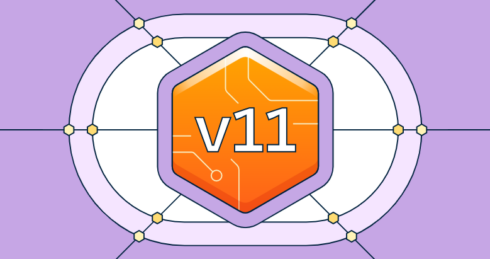
Postman has released a number of updates designed to help companies more effectively collaborate on API development.
“An API should be built with its user in mind. Users need to know what an API is and how it works. If they can’t do that, they waste a lot of time looking for the information, struggling to make APIs work. And developers aren’t the only ones who need to understand them; they need to be product- and QA-friendly as well. LEGO wouldn’t sell a LEGO castle set without instructions on how to put it all together. The same goes for APIs. Dev teams need to collaborate on APIs, just as much as they need to collaborate on code,” Abhinav Asthana, co-founder and CEO of Postman, wrote in a blog post.
With the release of Postman v11, API changes are now shown in the workspace updates feed, rather than being dispersed across various communication channels. API consumers that “watch” that workspace will be notified about the update, with an alert that includes a summary of the changes and a way to navigate to the change. Users will also be able to comment or react to the update.
A comment mode has also been added to Postman Collections, which is a self-service interface for finding information about APIs. Developers can now highlight text and add a comment to it and can mention specific people in the comment. Others can also respond to these comments and create conversation threads to organize thoughts.
Partner Workspaces, now generally available for Professional and Enterprise plans, are access-controlled workspaces where API developers can collaborate on APIs with external partners. Postman also introduced the ability to publish content to multiple partners at once as well.
“When companies work with lots of partners, they maintain multiple workspaces with nearly the same content in each one to ensure isolation between partners. This can become a lot of juggling. To resolve this burden, we’re introducing multi-partner mode so that you can publish Postman Collections to multiple external partners. The partner cannot see other partners’ activity in their workspace; they will see only your team members. This provides a sandbox where customers and partners can evaluate and consume your APIs by sending successful requests quickly,” Asthana wrote.
Postman v11 introduces the Package Library, which allows code to be reused multiple times across API requests. Packages contain blocks of business logic or code, and to reuse them, developers just reference that package in the places that need to reuse that code.
Other collaboration updates include the general availability of the VS Code extension, workspace themes, a verification option in the Postman Public API Network, and more.
Additionally, the company’s AI assistant Postbot is now generally available. First introduced last May, Postbot can help write better tests for APIs, generate API documentation, accelerate debugging, visualize API responses, and more.
“Whether organizations realize it or not, APIs are the hands and legs that power AI’s ‘thinking.’ Those that don’t prioritize their API design strategy now to prepare for an AI-driven future will be left behind,” said Asthana. “The AI battle will be won by improving APIs. Postman’s latest features will empower even the largest organizations to capitalize on the productivity benefits of AI by easing collaboration and communication around APIs, both internally and with external partners. We look forward to seeing the innovation that results.”
A full list of updates can be found in Postman’s release blog post.






